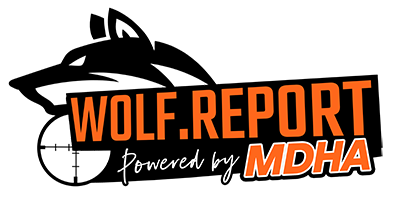

For hunters and outdoor enthusiasts, tracking wolf populations and their movements is a critical part of conservation efforts. Wolf observation data on Wolf.Report helps paint a clearer picture for wildlife management strategies, and creates an informed and engaged public. This list offers a comprehensive insight into the necessity of reporting wolf sightings, the positive impacts of such actions, and how Wolf.Report is the tool you need.
In any well-managed ecosystem, one of the keys to success is accurate information. For regional wildlife authorities, reports of wolf sightings can significantly enhance their knowledge and conservation efforts. Your observations contribute to the scientific understanding of wolf populations, help monitor population growth, and support informed decisions about human-wildlife coexistence. The simple act of reporting is a stand for responsible wolf management, and hunters stand on the front line with essential data.
Minnesota has been a focal point for wolf conservation and management. The need for a controlled hunting season stands on the pillars of data accuracy and sustainable game management. Accurate wolf population numbers can proactively prevent the need for federal intervention and foster self-regulation within the state's borders. By reporting wolf sightings, outdoorsmen and women are directly contributing to the data that will support a hunting season, further improving the balance in nature.
In rural areas, the presence of wolves carries a certain set of challenges, especially for farm owners. Being aware of nearby wolf activity can allow for protective measures for livestock and pets, minimizing economic loss and ensuring the safety of domestic animals. Regularly updating authorities on wolf proximity through Wolf.Report ensures that stakeholders are equipped with the information they need to respond effectively.
Your report not only serves current management needs but could also contribute to future regulatory decisions. Your documentation adds to the database of sightings that can inform conservation strategies, public safety precautions, and determine endangered species listings. It's a mutual benefit for both the reporting party and the management of the wildlife they have observed.
Wolf.Report is more than a place to drop off your observations—it's a hub to participate in the proactivity of wolf management. When you make a sighting report, you can include vital details like time, location (including GPS coordinates), activity, and any accompanying photographs. The more detailed the report, the greater the value it holds for conservationists.
If you have a photograph or video of the wolves you've encountered, share it! Visual evidence not only adds credibility but also aids in identification and scientific categorization—this might even lead to discoveries like new packs.
Organizations like Wolf.Report and associations such as the Minnesota Deer Hunters are pivotal in enacting change and providing hunters a voice in wildlife management. By supporting these entities through memberships, activism, or even just spreading the word, you reinforce the platforms that enable you to be an active participant in the ecosystem's health.
Reporting wolf sightings might seem like a small act, but it is one massive step towards ensuring a balanced and sustainable environment for future generations. Hunters and outdoors people have invaluable experience and insight to offer in the conservation conversation. By engaging with Wolf.Report, you elevate your role in wildlife management from just a participant to a contributor.
